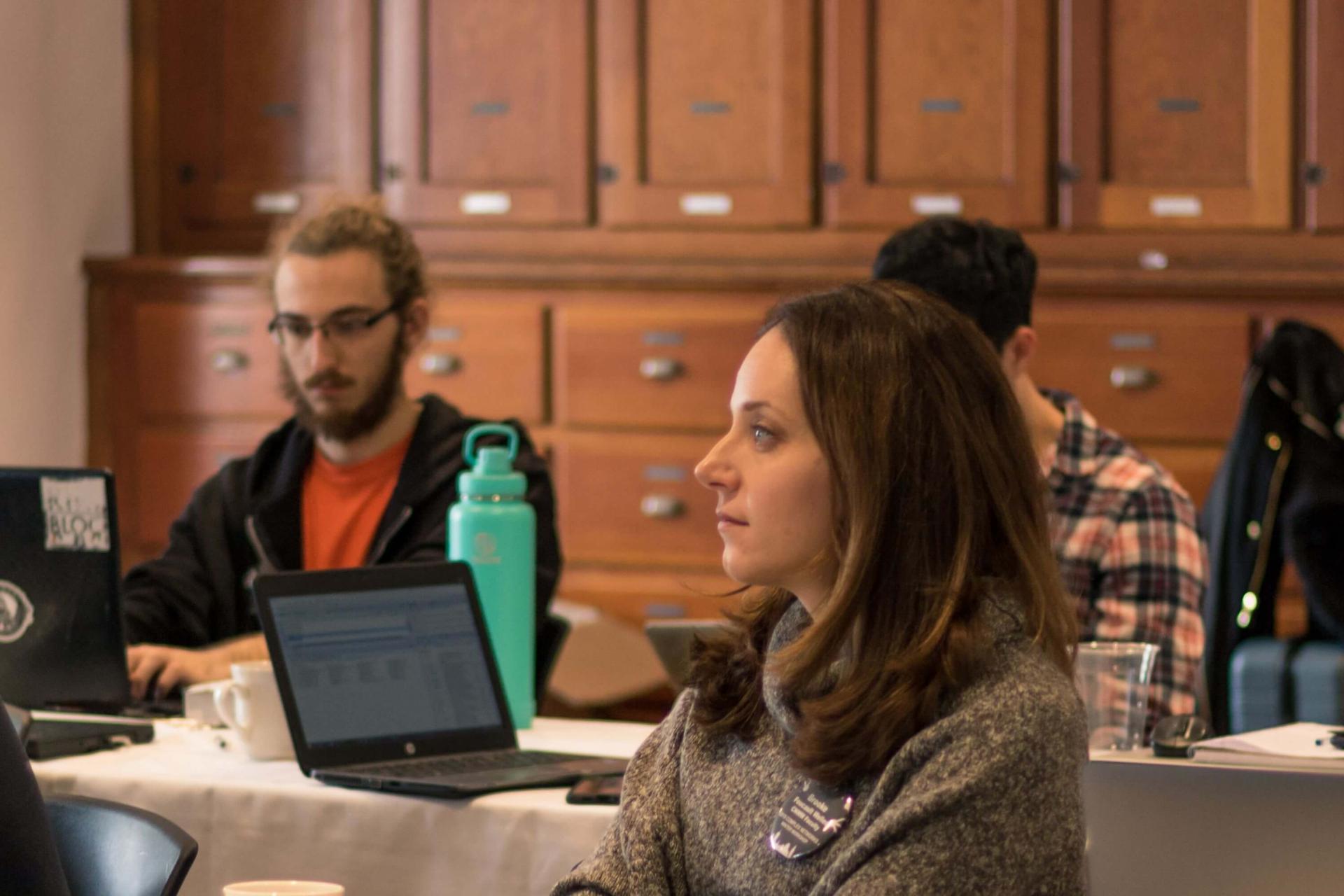For several years, a postdisciplinary team of faculty and students working at the University of Vermont's College of Engineering and Mathematical Sciences has been solving real-world, data-rich, and meaningful complex systems problems of all kinds.
Now, the Vermont Complex Systems Center (VCSC) has added the External Faculty program, bringing in researchers from outside the state to collaborate on new research. “The VCSC External Faculty honors and offers gratitude to an international cohort of external collaborators whose mentorship, kindness, collaboration, and leadership help to make the VCSC and the complex systems community, at large, a better place,” says Juniper Lovato, Director of Partnerships and External Programs. “This has been a longtime goal of the Center.”
As Lovato explains, the VCSC External Faculty were nominated and voted on by the VCSC core team in February 2021. The cohort serves five-year terms and will be external mentors for junior researchers and students at the VCSC; research collaborators; and affiliates of the Center.
“The VCSC leadership team is delighted to welcome this highly accomplished cohort of inaugural External Faculty to our research community,” says Lovato. “External Faculty were nominated and voted on based on their existing collaborations with the Center, their leadership in the complex systems research community, academic excellence, and mentorship skills. Our team is excited to strengthen the existing relationships with this cohort of talented researchers.”

(Antoine Allard Co-Director of the Complex Network Winter Workshop (photo in 2018) photo credit Marc Robitaille of Sentinelle Nord)
Among the External Faculty cohort is Mirta Galesic, Professor at the Santa Fe Institute, External Faculty at the Complexity Science Hub in Vienna, Austria, and Associate Researcher at the Harding Center for Risk Literacy at the University of Potsdam, Germany. Another member of the team is Antoine Allard of Laval University in Quebec, who has worked with Lovato and other VCSC researchers in the past. “Having a background in theoretical physics, my strengths reside mainly in my ability to design mathematical models that can help us understand the behavior of various complex systems,” he says of what he brings to the program. Most of the work he’s done with fellow faculty members can be summarized by the use of mathematical models to better understand the dynamics of disease transmission (and its potential consequences), explains Allard. “I expect my work in collaboration with the Center over the next years to be mainly articulated around this idea,” he says. “I am also interested in designing new privacy strategies for on-line platforms, which overlap with the Centers’ interests.”

(Antoine Allard Co-Director of the Complex Network Winter Workshop (photo in 2018) photo credit Marc Robitaille of Sentinelle Nord)
A faculty member at UVM and member of the Complex Systems Center between 2016 and 2017, Sam Scarpino left when he and his partner both got faculty positions at Northeastern.” It was really hard for me to leave the incredible colleagues, staff, and students at the Complex Systems Center,” says Scarpino. “I am truly honored to be included alongside such an incredible group of faculty. Many of them are already collaborators, which will make continuing our work even easier.”

(Antoine, Sam, and Laurent at CNWW (photo credit Juniper Lovato))
As Scarpino elaborates, the group currently studies infectious disease outbreaks and public health response. “Hopefully, our work will improve public health data practices and decision support during infectious disease outbreaks,” he says. “I also hope that our shared ethos around science being a place for exploration and fun will further transcend the research community.”
